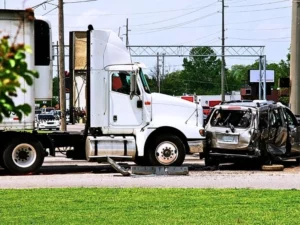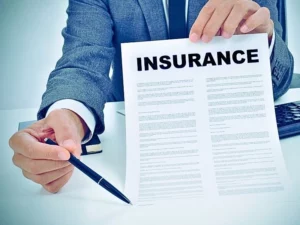When a car accident results in injuries, claims are often settled out of court. With medical bills that need paid, and a loss of income because of your accident, you may be wondering, “Why is my car accident settlement taking so long?” Personal injury cases may involve a variety of issues that impact the settlement timeline. The timeline is impacted by the willingness of the insurance company to offer a fair settlement and the time it takes to gather evidence, witness statements, and your medical records.

How Do Car Accident Settlements Work in Illinois?
In Illinois, the majority of car accident cases are handled through settlement arrangements between the injury victim’s car accident lawyer and the at-fault party’s insurance company. To determine compensation for damages, the injury claim must be investigated and evaluated by an insurance claims adjuster.
Because there are steps that must be followed in the process, insurance settlements can be complicated and lengthy. Depending on the complexity of the accident and the severity of injuries and property damages, an insurance settlement process can drag out for months or even years. This is especially when claims are made without a car accident lawyer who can negotiate a fair settlement for the injury victim and oversee the settlement process. In most cases, the settlement process includes the following steps:
Contacting the Policyholder and the Claimant
Once a car accident claim is filed, the at-fault party’s insurance company will contact the policyholder and the injury victim (the claimant) to discuss details of the accident. After gathering information about the accident, the claim will be turned over to an insurance adjuster, who will compare the details provided by both parties to evaluate fault for the accident.
The insurance adjuster will also review other information collected from the scene of the accident, which typically includes police reports and eyewitness statements.
- Police Reports – Police reports from car accident scenes focus on details that help to prove fault for the accident. Reports often indicate car speeds and impact speeds, skid marks, risky driving behaviors, personal injuries, and property damages to vehicles and nearby objects.
- Eyewitness Statements – Any eyewitnesses to the accident will be interviewed at the scene and noted in the police report. Eyewitnesses will also be questioned by insurance adjusters who are trying to determine the fault for the car accident.
Establishing Proof of Liability in Car Accident Cases
Establishing proof of liability for a car accident is essential when dealing with injury claims, but it may play a role in why your car accident settlement is taking so long. In some cases, a driver’s negligent actions such as speeding, ignoring a stop sign, running a red light, or driving while under the influence of alcohol and/or drugs is enough to prove liability. In other cases, proving fault may be much more difficult, especially when multiple drivers are found to be at fault for the car accident. If this happens, each at-fault driver may share a percentage of the liability.
Illinois is not a no-fault state but runs under a tort system with modified comparative negligence. This means that an at-fault driver who causes an accident pays up to a certain percentage for their liability in the accident. In Illinois, liability insurance is a requirement for all drivers.
Comparative negligence is also part of the package when it comes to Illinois insurance law. This means that an injury victim in a car accident is generally entitled to financial damages up to the percentage of fault assigned to the other driver.
Under the Illinois fault or tort system, the driver or drivers determined to be at fault for the car accident pay for damages to other parties involved in the accident. In practice, this typically means that the at-fault party’s insurance company is responsible for the payment of damages. However, injury victims are also allowed to file car accident lawsuits against at-fault drivers. There are no restrictions against pursuing personal injury lawsuits, as there are in no-fault states.
Calculating the Value of a Claim
Once the insurance claim adjuster is finished with the case investigation and review, he/she will assign a monetary value to the injury claim. When calculating the value, the adjuster will look at two important factors: (1 the claimant’s chances of winning the case, if the case proceeds to a court trial, and (2 how much the jury may potentially award for calculated damages and incalculable damages.
- Calculated Damages – Medical expenses, lost income, and property damages are calculated damages. Insurance claims adjusters pay close attention to calculated damages provided by health care providers, hospitals, and licensed physicians.
- Incalculable Damages – Pain and suffering and emotional distress are incalculable damages. Because they are nearly impossible to calculate, insurance claim adjusters use specialized software formulas that place a value on all incalculable damages.
Making a Settlement Offer
Once a monetary value is calculated for the claim, the at-fault party’s insurance company will make a settlement offer to the claimant. If the claimant accepts the offer, the payment may be paid out in a lump sum or in individual payments according to a settlement agreement. In many cases, insurance companies make low offers, often significantly less than what the case is worth, especially when the injury victim is not represented by a car accident lawyer who can negotiate the settlement terms.
What Is the Average Car Accident Settlement in Illinois?
In Illinois, car accident settlements are limited by law to the maximums available under the at-fault driver’s car insurance policy. The minimum liability coverage for Illinois drivers is 25/50/20 which covers the following:
- $25,000 bodily injury per person
- $50,000 bodily injury per accident
- $20,000 property damage per accident
Illinois drivers must also carry uninsured/underinsured motorist coverage for bodily injury, which includes $25,000 per person and $50,000 per accident.
The at-fault party’s insurance policy limit restricts the settlement amount that a car accident victim can receive as compensation in Illinois. If severe injuries, extensive property damages, and deaths occur, the minimum liability coverage shown above is likely far from adequate to cover the costs of current and future medical expenses, property damages, current and future lost wages, pain and suffering, and funeral expenses.
When injuries are caused by an Uber accident, settlement payouts to injury victims can be substantial. Uber carries a $1 million insurance policy to cover ride-share accidents and injuries for drivers, passengers, and third parties, as long as the Uber driver is officially on duty. This means that the driver must be logged into the Uber app when a car accident occurs. If the driver is logged in and officially on duty, Uber’s basic insurance coverage applies to car accidents. Coverage includes:
- Bodily injury per accident – $100,000
- Bodily injury per person – $50,000
- Property damage per accident – $25,000 per accident
In cases where Uber drivers are unavailable to pick up passengers or not transporting passengers, Uber’s insurance does not apply. If an Uber driver is not logged into the Uber app when a car accident occurs, Uber will not assume liability for accidents and injuries.
There is no specific formula for determining car accident settlements because accidents and injuries vary greatly. A particular type of injury is not equivalent to a specified dollar amount. Some insurance companies, despite the absence of a fixed formula, use a multiplier with special damages that usually includes medical expenses, property damages, and lost earnings.
When serious injuries occur, it may be best to consider legal actions in court that provide more lucrative outcomes for most injury victims. Recent car accident data shows that the typical car accident settlement is between $14,000 and $28,000, and about $31,000 in serious car crashes. Another guide for determining an average car settlement is to multiply the victim’s medical bills, car repairs, and lost wages by a factor of three.
Why Do Some Car Accident Settlements Take Longer Than Others?
Car accident settlements can take several months to several years, depending on specific factors in the case. To establish liability for the accident, proof is required to show how the accident occurred, who is at fault for the accident, and the extent of personal injuries and property damages.
In the majority of cases, injury claims for car accidents never proceed to court, but are settled out of court between injury lawyers and insurance companies. Depending on the complexities of the case and how long the insurance adjuster’s process takes, some settlements may take longer than others. All cases are different and there is no easy way to understand why is my car accident settlement taking so long or predict the timeline for a settlement agreement.
If a car accident involves no personal injuries and minimal property damages, the settlement timeline can be brief. When injuries occur, the process is different because proof of injury must be established to determine a payment amount. The settlement process will take longer because the following important information must be collected:
Medical and Expense Records
To receive maximum compensation in a settlement, it is necessary to prove the value of the injury victim’s losses. This is done by gathering medical records, medical bills, proof of lost wages, and other documentation to support a claim. Medical records are essential to show proof for injury claims because they note a patient’s physical examinations, treatments and lab work, prescribed medications, follow-up examinations, and prognosis for recovery.
Maximum Medical Improvement
In car accident cases that include serious injuries, it often takes a good amount of time to fully understand the extent of a victim’s injuries and full prognosis. These types of cases often involve ongoing or long-term treatments, physical impairments or disabilities, and many required follow-up visits for the patient. In order to fully total a settlement demand amount, the patient must have reached maximum medical improvement (MMI). MMI is the point at which a person has fully recovered from his/her injuries or has reached a point where further improvement is not expected.
MMI is critical to understanding the full extent of a person’s present and future losses. For example, in a serious pedestrian hit-and-run accident, it may take years for the victim to reach MMI. If a settlement is reached before an injury victim understands his/her full prognosis, it can result in substantial losses for damages. Once a claim is settled, it can not be reopened in the future when ongoing medical care and expenses for treatments exceed the amount of the settlement.
High-Value Claims
Car accident settlements usually include compensation for the total of an injury victim’s medical expenses, property damages, lost wages, and other awards such as pain and suffering or punitive damages that may be awarded in negligence cases. When there are severe injuries or deaths and extensive property damages, the timeline to settle a claim may increase. The higher the value of the claim, the more complex the case becomes. With high-value claims, the negotiation process between the victim’s car accident lawyer and the at-fault driver’s insurance company can be significantly drawn out.
Negotiation Tactics
Once the full extent of damages is known, a car accident lawyer will begin negotiations with a settlement demand letter to the insurance company. The letter will note all injury information related to the case. The insurance company will do its own investigation and attempt to uncover evidence that invalidates the claim. The insurer may also prolong the settlement process, as well as a settlement offer or payment. Insurance companies use a variety of tactics that may pressure an injury victim into a low-offer settlement.
In the event a fair settlement can’t be reached, a car accident lawyer can file a personal injury lawsuit and take the case to court to pursue maximum compensation for the injury victim.
Legal Problems
A settlement may be slowed down by legal problems such as disputes over accident liability, disputes over damages, and disputes over assigned monetary value to injuries. When disputes arise, the question of why is my car accident settlement taking so long can be complicated by legal problems between lawyers and insurance companies.
In cases where liability is difficult to prove, it’s unlikely that the insurance company will offer a reasonable settlement until the plaintiff’s legal team has filed the case as a lawsuit and employed liability experts to show the defendant was at fault. In some cases, insurance companies will not make a settlement offer, because they dispute that the victim’ has cause to file a lawsuit against them. These types of cases take longer because a judge will have to rule on the victim’s right to sue.
In some cases, problems can be linked to specific damages. This can happen when doctors treating the injury victim are not certain that the injuries were caused by the car accident. In such cases, insurance companies are less likely to offer a settlement until definitive proof is shown, and/or doctors are willing to testify in court based on medical evidence.







